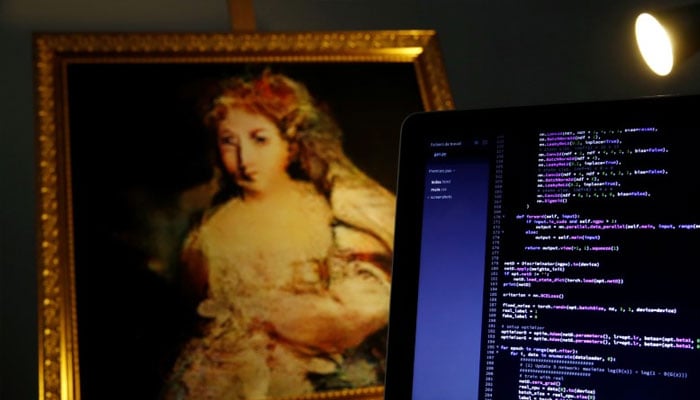New app ARK launched to protect artists' work from AI
“AI is coming in, swooping in and taking so many people’s jobs,” says co-founder Hartman
April 07, 2025

In 2008, screenwriter Ed Bennett-Coles faced what he described as a personal “death moment” in his career — he had just read an article about artificial intelligence writing its first screenplay.
According to AFP, that moment marked a turning point in his creative journey.
Nearly two decades later, Bennett-Coles and his friend Jamie Hartman, a successful songwriter, have launched ARK, a blockchain-based app designed to protect human-made art from the encroaching threat of AI-generated content.
“AI is coming in, swooping in and taking so many people’s jobs,” said Hartman. Their app, he added, responds with a firm, “no... this is our work.” He continued, “This is human, and we decide what it’s worth, because we own it.”
ARK is designed to track and secure intellectual property from inception to the final product. For example, a user can upload a rough demo or early idea, instantly establishing proof of creation.
Additional features like non-disclosure agreements, biometric verification, and blockchain-backed timestamps help confirm ownership. Collaborators can also log their own contributions, ensuring credit and compensation are fairly shared.
“ARK challenges the notion that the end product is the only thing worthy of value,” said Bennett-Coles. Hartman emphasised that the app is built to preserve the human creative process — something they both believe is under siege by the rise of artificial intelligence.
Set to fully launch in summer 2025, ARK has already secured funding from venture capital firm Claritas Capital and has formed a strategic partnership with BMI, the performing rights organisation. According to Bennett-Coles, ARK had to be decentralised in order to give creators full control over their intellectual property. “In order to give the creator autonomy and sovereignty over their IP and control over their destiny, it has to be decentralised,” he said.
Reflecting on AI’s impact, Bennett-Coles said, “I saw a quote yesterday which really sums it up: it’s that growth for growth’s sake is the philosophy of the cancer cell. And that’s AI.”
He likened the difference between AI and human art to a child going to the butcher with his grandfather versus ordering meat online.
“The car trip that Jamie makes when he’s heading to the studio might be as important to writing that song as what happens in the studio itself,” he added.
Hartman concluded that ARK serves as “a check and a balance on behalf of the human being.”











